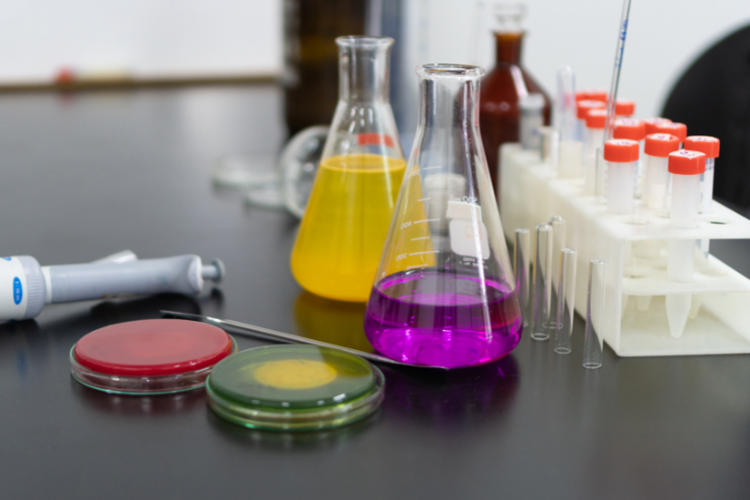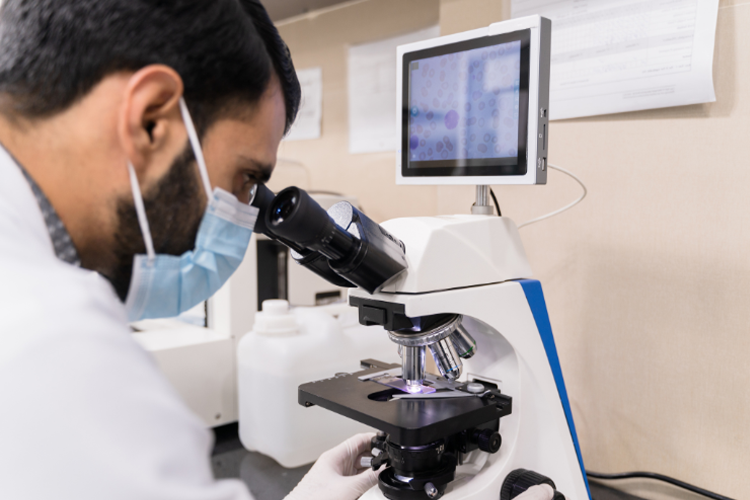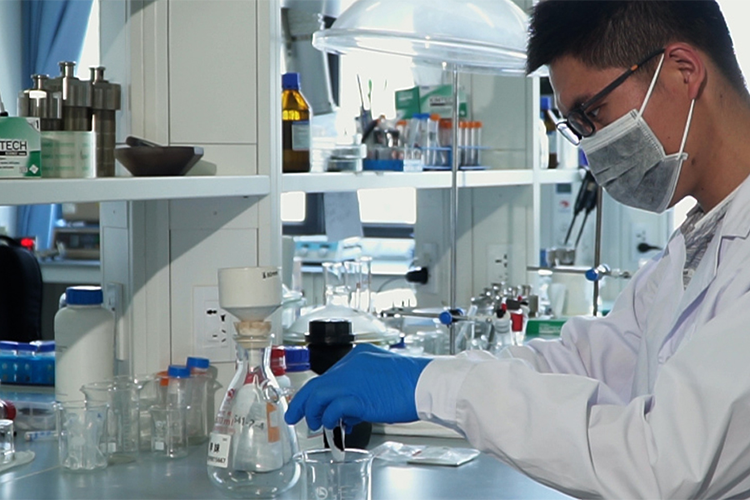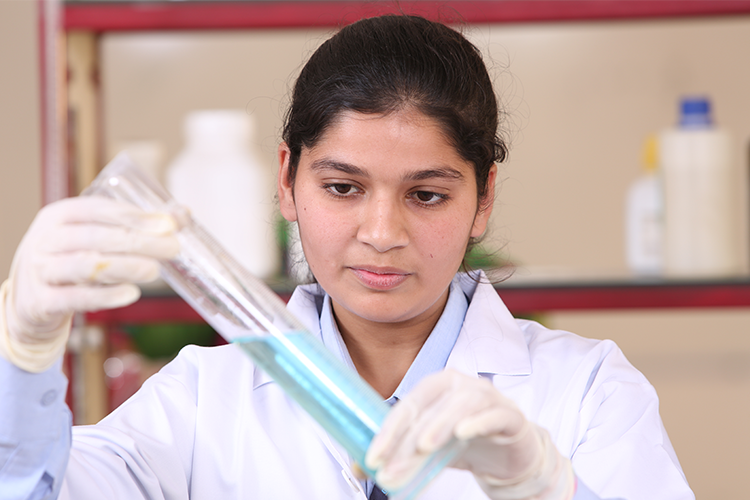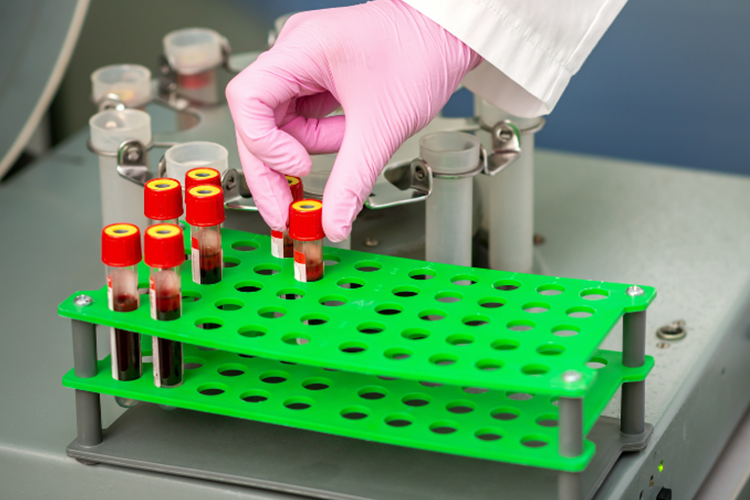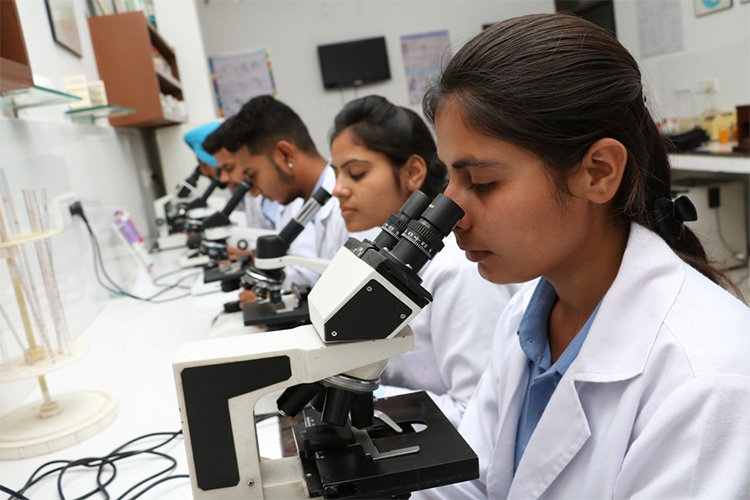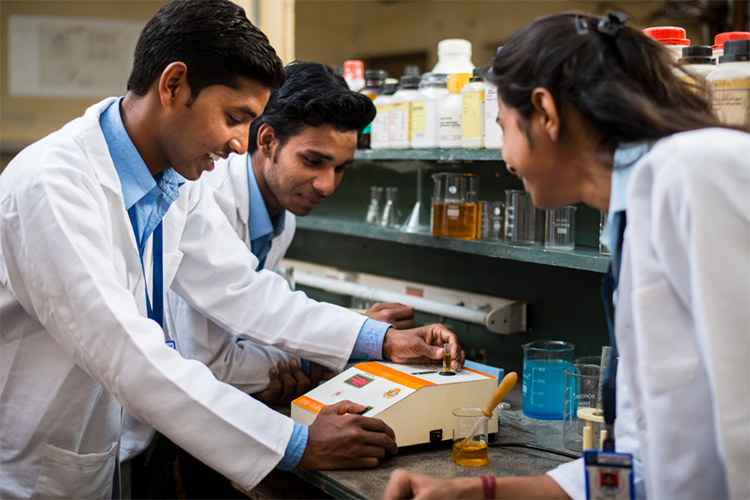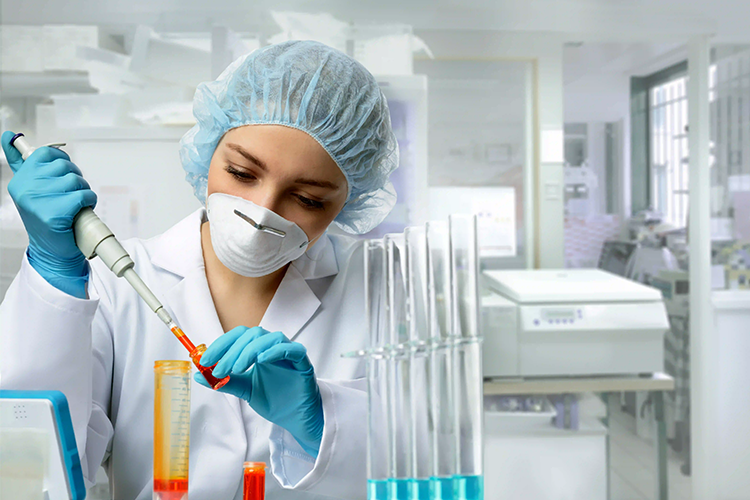Course Structure
The B.Sc in Medical Lab Science program at Gulzar Group of Institutions offers a comprehensive curriculum spanning six semesters.
Fundamental principles of biology, including cell structure, genetics, and evolution, providing a base for understanding complex biological systems.
Study of microorganisms, including bacteria, viruses, fungi, and protozoa, and their impact on health and disease.
Introduction to the chemical processes and substances that occur within living organisms, focusing on metabolic pathways and biochemical reactions.
Detailed study of the human body’s structure and functions, covering organ systems and their interactions.
Development of professional communication skills, focusing on writing, speaking, and understanding technical language.
Examination of environmental issues, sustainability, and the impact of human activities on natural systems.
Focuses on the classification and identification of bacteria affecting various organ systems. Students study bacterial pathogenesis, diagnostic techniques, and treatment approaches, relevant to clinical microbiology.
Explores the chemical reactions in living organisms, focusing on energy production, nutrient metabolism, and enzyme function. Students understand metabolic disorders and biochemical pathways crucial for life processes.
Teaches the basics of blood composition, blood cell functions, and common haematological disorders. Students learn laboratory techniques for diagnosing blood-related diseases, including microscopy and blood analysis.
Focuses on techniques used to analyse biomolecules like proteins, nucleic acids, and metabolites. Students learn spectroscopy, chromatography, and electrophoresis to assess biochemical compounds in research and diagnostics.
Advanced concepts in laboratory management, focusing on strategic planning, resource allocation, and quality assurance.
Exploration of ethical behaviour, addiction prevention, and traffic safety, promoting social responsibility.
Covers the study of diseases at the cellular level. Students examine abnormal cell structures, their implications in diseases like cancer, and laboratory methods for diagnosing pathological changes.
Advanced methods and applications in clinical biochemistry for effective disease diagnosis and patient monitoring.
Practical applications of bacteriology in diagnosing infections, culturing bacteria, and implementing infection control measures.
Study of the immune system’s response to infections and diseases, and an introduction to fungal pathogens and their treatment.
Advanced techniques and practices in haematology, including blood cell analysis and disorder management.
Techniques for preparing, staining, and analysing tissue samples, including histological techniques used in diagnosing diseases.
Applies biochemistry to clinical practice, focusing on the biochemical markers used for diagnosing diseases. Students explore metabolic diseases, enzyme defects, and lab techniques for clinical diagnosis.
Procedures and practices related to blood donation, processing, storage, and transfusion.
Study of parasitic infections and viral diseases, including their diagnosis, treatment, and prevention.
Advanced histotechnology and cytological techniques for detailed analysis of tissues and cells, including diagnostic and research applications.
Explores the operational aspects of medical laboratories, including quality control, safety protocols, and management of resources. Students gain skills in lab administration and compliance with healthcare standards.
Research or practical project focused on a specific topic within medical laboratory sciences, demonstrating applied knowledge and skills.






















